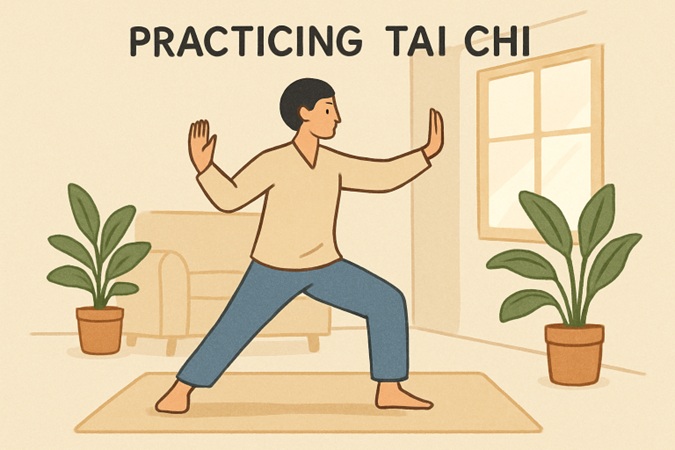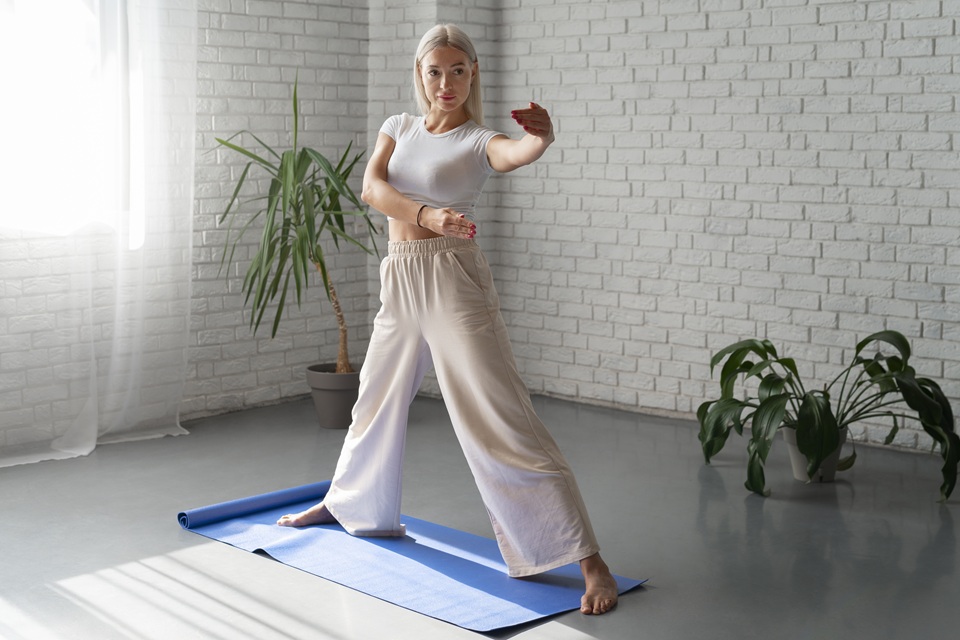Key Takeaways:
- Practicing Tai Chi at home offers a wide range of physical and mental health benefits for people of all ages.
- Consistent practice improves balance, reduces everyday stress, and supports cognitive fitness.
- Home-based routines offer unmatched flexibility and comfort, accommodating virtually any lifestyle.
Introduction
Tai Chi, a centuries-old Chinese martial art, is widely celebrated for its gentle, fluid movements and meditative elements. Originally developed as a means of self-defense, today Tai Chi is appreciated worldwide as a holistic exercise for improving health and overall well-being. While traditionally performed in parks and with groups, more people are turning to home practice due to its accessibility and the growing popularity of online Tai Chi classes and resources. This makes Tai Chi not only attainable for beginners but also highly adaptable for those with a busy or home-centered lifestyle.
Practicing Tai Chi at home eliminates many barriers commonly associated with group exercise, such as scheduling conflicts, commute time, and the need for specialized equipment. In addition to these practical benefits, consistent home practice provides a quiet space for reflection and mindful movement, which are core aspects of the Tai Chi tradition.
Even if you’re new to the practice, the basic routines can be learned at your own pace, making it suitable for all fitness levels. Home-based Tai Chi offers flexibility, whether you want to exercise early in the morning or unwind in the evening. Furthermore, the supportive environment of your own home encourages regular practice and ongoing personal development.
This emphasis on accessibility and convenience has sparked a tremendous increase in participation and sharing of Tai Chi knowledge. Research, including analyses by major health organizations, continues to highlight substantial improvements in overall wellness among long-term practitioners.

Physical Health Benefits
Tai Chi is renowned for its capacity to boost physical health without being strenuous or challenging on the joints. One of its most immediate effects is improvement in balance and flexibility. Consistent, mindful movement strengthens the legs and core, helping prevent falls—a crucial benefit for older adults. According to Harvard Health, this centuries-old practice not only promotes physical stability but also nurtures mental focus and relaxation, making it an ideal low-impact exercise for people of all ages.
Beyond balance, Tai Chi enhances circulation and cardiovascular health. Its slow, steady tempo helps lower high blood pressure, while gentle stretching improves joint mobility. Those managing chronic conditions such as osteoarthritis, back pain, or fibromyalgia often find Tai Chi to be an inviting alternative to high-intensity workouts.
Mental Health Benefits
Tai Chi’s roots in meditation and breathwork make it a powerful tool for supporting mental well-being. The synchronized movements and focus on deep breathing naturally ease muscle tension and activate the body’s relaxation response. Practitioners often report decreased anxiety, reduced symptoms of depression, and a calmer state of mind after regular practice. Scientific studies published in major medical journals have established a clear link between Tai Chi and improved sleep quality, leading to more restful nights and greater energy during the day.
In addition, Tai Chi teaches individuals mindfulness by encouraging a heightened awareness of bodily movement and presence in the moment. This state of “moving meditation” not only combats daily stress but also provides an effective coping strategy for life’s challenges.
Cognitive Enhancement
Emerging research highlights the remarkable benefits of Tai Chi for brain health, especially in older adults. Memorizing movements, adjusting posture, and coordinating breath with motion all work to stimulate memory, focus, and other executive functions. As a result, regular practitioners may notice improved attention span, sharper recall, and even a slower rate of age-related cognitive decline.
One notable study, referenced by the National Center for Complementary and Integrative Health, underscores Tai Chi’s potential in supporting cognition and overall brain health, particularly for individuals with mild cognitive impairment or those seeking preventive strategies.
Practicing Tai Chi At Home
The at-home approach to Tai Chi comes with a range of unique advantages. Practitioners can adapt their routine to fit any schedule, from a few minutes of morning movement to longer sessions as time allows. No special gear is required – comfortable clothing and enough open floor space are all that’s needed. Home practice also offers privacy and personalization, allowing movements and routines to be modified according to personal preferences or physical requirements.
Additionally, practicing at home encourages consistency, which is fundamental for experiencing long-term benefits. Reducing logistical hurdles often associated with group classes supports a sustainable fitness habit while nurturing self-discipline and motivation.
Getting Started
- Choose a Suitable Space: Select a peaceful spot with enough clearance to stretch your arms and move around comfortably. Face a window if possible for natural light and inspiration.
- Learn the Basics: There is a wealth of online tutorials and video resources available for beginners. Instructional materials can demonstrate fundamental postures, stances, and breathing techniques required for a strong foundation.
- Establish a Routine: Commit to daily or regular practice – even short 10-minute sessions – for the greatest benefits. As you become familiar with movements, increase your session length as comfort allows.
- Listen to Your Body: Pay careful attention to how you feel, and avoid pushing through pain or discomfort. Tai Chi should feel gentle and restorative, never forced or rushed.
Conclusion
Tai Chi offers a holistic approach to health and harmony that can be easily adapted to fit modern home life. With its wealth of physical, mental, and cognitive benefits and its incredible accessibility, Tai Chi stands out as a mindful movement practice that supports lasting wellness. By embracing a consistent home practice, you can cultivate strength, serenity, and a more profound sense of balance – both in body and mind.
